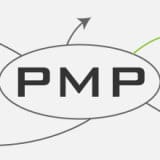PMI-ACP Tools and Techniques: Soft Skills Negotiation

[PMI-ACP® Exam Study Notes] Agile Soft Skills Negotiation is one of the ten Tools and Techniques for the PMI-ACP® exam. The “Tools and Techniques” accounts for a total of 50% of all the questions to be found on the exam paper. According to the PMI-ACP® exam content outline, Soft Skills Negotiation includes Emotional Intelligence, Collaboration, Adaptive Leadership, Negotiation, Conflict Resolution, Servant Leadership.
PMI-ACP® Exam Importance: around 3-6 questions (~5% of all questions)
Article Highlights
PMI-ACP® Tools and Techniques: Soft Skills Negotiation
The soft stuff is the hard stuff
- Though Agile Manifesto emphases “Individuals and interactions over processes and tools”, the majority of the PMI-ACP® study notes focus on processes and tools. That’s because the processes and tools are easier to describe. Soft skills are actually very important for Agile project success.
- “People” is the single most important factor that affect the success or fail of a project.
- Agile negotiation is considered as a healthy process of give and take
- Soft skills are particularly important for Agile project owing to the emphasis of face-to-face communication and co-located teams
- these skills are intended to be used in Agile coaching
- Emotional Intelligence (EQ / EI)
| Self | Others | |
| Self-Management
Self-Control |
Social Skills
Influence |
Regulate |
| Self-Awareness
Self-Confidence |
Social Awareness
Empathy |
Recognize |
-
- The table above describes aspects of emotional intelligence EI
- EI is the ability / skill to identify, assess, monitor and control or influence the emotions / feelings of oneself and others
-
The leader’s mood and behaviors drive the mood and behaviors of everyone else
- Don’t let emotions take over but let emotions work for you
- Collaboration
- collaboration = working together through effective communication, making sure all members agree, resolve conflicts, create a win-win situation and move forward with a group consensus
- Customer collaboration and team collaboration are important for Agile projects
- Negotiation
- “collaboration over contract negotiation”
- communication with two or more parties to reach an agreement / resolve conflicts
- Negotiation strategies
- Distributive negotiation: adopt extreme positions initially and work to reach a deal through tactics on the assumption that value is limited
- Integrative negotiation: work together to achieve something by creating more values for a win-win solution
- Conflict Resolution
- conflict is inevitable and is good for project success when controlled
- Stages of Conflict – try not to escalate the conflict stage
- Problem to solve
- Disagreement – with self-protection
- Contest – taking sides (you-vs-me)
- Crusade – over-generalization in judgement
- World War – unresolvable
- focusing on turning conflicts into a win-win situation, often need to make use of emotional intelligence and active listening
- conflict resolution:
- [x] Accommodation – identify points of agreements and play down disagreement
- [x] Avoidance – ignore the conflict
- [x] Compromise – both sides to give up something, a lose-lose situation
- [x] Forcing – force one side to accept something, a win-lose situation
- Confronting – open dialogue leading to problem resolution, a win-win situation
- Collaboration – work together for mutually consented solution
- Adaptive Leadership / Situational Leadership
- the leader adapts how he/she leads based on the specific environment / situation in order to be most effectively, e.g.
- the maturity stage of the team: forming, storming, norming, performing, adjourning, the leader would move from high directive, low supportive (forming), then low directive, high supportive (norming) and finally low directive, low supportive (performing)
- focusing on value-added activities instead of blindly following processes
- openness and transparency are highly valued to facilitate communication amidst changes
- the leader adapts how he/she leads based on the specific environment / situation in order to be most effectively, e.g.
- Servant Leadership
- traditional leadership / management: command-and-control (Theory X – workers are lazy and need to be monitored closely)
- servant leadership: leading by serving and makes sure needs of other team members are met [servant first, leader second] (Theory Y – team members are self-motivated) as development team is the one to accomplish the tasks and deliver values
- an Agile servant leader needs to:
- protect the team from outside distractions / interruptions
- remove impediments to the team’s performance
- communicate and re-communicate project vision – maintain a common vision to drive the team to perform
- carry food and water – i.e. provide all the resources for the team to perform, including motivate the team, provide trainings
Summary: Soft Skills Negotiation
This PMI-ACP® Exam Study notes touches upon one of the many tools and techniques of the PMI-ACP® exam syllabus – Agile Soft Skills Negotiation. Soft Skills Negotiation includes Emotional Intelligence, Collaboration, Adaptive Leadership, Negotiation, Conflict Resolution, Servant Leadership.
Most Popular PMI-ACP Certification Articles
- Top 10 Tips to Prepare for the exam (I got all Proficient in my exam)
- How to Get 21 Contact Hours?
- Over 600+ FREE Quality Mock Exam / Practice Questions





 Hi, my name is Edward Chung, PMP, PMI-ACP®, ITIL® Foundation. Like most of us, I am a working professional pursuing career advancements through Certifications. As I am having a full-time job and a family with 3 kids, I need to pursue professional certifications in the most effective way (i.e. with the least amount of time). I share my exam tips here in the hope of helping fellow Certification aspirants!
Hi, my name is Edward Chung, PMP, PMI-ACP®, ITIL® Foundation. Like most of us, I am a working professional pursuing career advancements through Certifications. As I am having a full-time job and a family with 3 kids, I need to pursue professional certifications in the most effective way (i.e. with the least amount of time). I share my exam tips here in the hope of helping fellow Certification aspirants!






Hi Edward, I really appreciate your efforts . This is an excellent site. Thanks a lot.
Just a small correction in EI quadrants. Social Skills (top right) is influence.
Hi Sairam,
Thanks for pointing out the typo. My bad. Corrected in no time.
Wish you PMI-ACP success!
Ey thanks, this is very helpful. Love your site